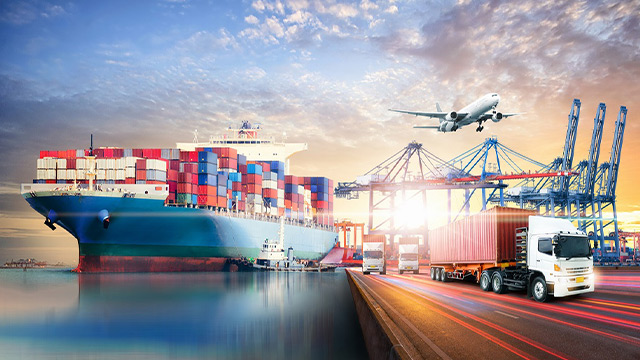Consumers Feeling the Effects of Materials Shortages
By Paul Owers | 06/01/2021
Tags: ITOM | Press-ReleasesCategories: Academics | Announcements
FAU Researcher Says Pandemic Led to Global Shift in Supply and Demand

Consumers looking for new and used cars and other big-ticket items or even small conveniences such as ketchup packets will have to be patient in the coming months as the world works through shortages in supply chains caused by the pandemic.
New car manufacturers are dealing with a lack of semiconductor chips, severely limiting vehicle production and pushing up sticker prices. That’s prompting car buyers to consider used cars, but dealers that emptied their lots last year during the COVID-19 crisis now don’t have the inventory to meet soaring demand. As a result, experts say this might be a good time for consumers to sell their used cars, which are fetching top dollar.
Rubber shortages are hurting tire manufacturing, and fast-food restaurants have trouble keeping ketchup packets in stock due to limited supply of plastics, which also means grocery stores have fewer soft drink bottles to sell.
“The normal Christmas container shipping crunch usually happens in the third quarter to get goods here on time for the holidays, but with ships already at capacity, how does this holiday inventory get here?” said David Menachof, Ph.D., an associate professor in Florida Atlantic University’s Information Technology and Operations Management Department within the College of Business. “Something has to be left behind, and that's where the shortages will occur. My advice is if you see it on the shelf and you want it, get it early.”
The supply squeeze began last year at the start of the pandemic, when a shift in supply and demand happened at the same time and on a global scale, Menachof said during a recent podcast.
In a more localized event, such as a hurricane, supply can be shifted from another area that wasn’t affected, but virtually no part of the world was spared from the coronavirus, he noted. Weather events have exaggerated the COVID-19 effects in some industries. For example, petroleum and chemical facilities in the Gulf Coast were seriously affected.
Additionally, Menachof explained that container ships continue to struggle to reach ports due to congestion. Once they arrive, there aren’t enough trucks and trains to transport the containers to their destinations. That slows down the unloading of the ships, which has the spillover effect of causing subsequent ships to be delayed.
He believes consumers should expect to deal with supply shortages during the next year and maybe longer.
“It’s starting from the raw materials being in short supply and working through the supply chain,” Menachof said. “Lumber is another example. New-home building slowed down, so builders weren't ordering as much. As a result, lumber mills also shut down. But nobody anticipated people using up the existing lumber supply with all the home improvements they decided to do while they were stuck at home during the pandemic.”
The materials shortages will be a major topic for FAU’s Master of Science in Supply Chain Management. The new degree, a series of 10 courses that can be completed in 18 months, also will focus on international shipping and trade and business analytics. The university is currently accepting applications for the fall.
“We decided to offer this degree after talking to industry experts,” Menachof said. “There is a shortage of supply chain professionals, and this expertise is what firms are looking for in new hires.”
-FAU-